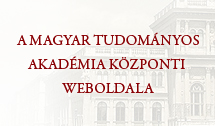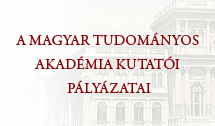Szemináriumsorozat: J. D. Mininger
J. D. Mininger
"Anxiety: Genealogy of a Philosophical Discourse"
című előadására.
Helyszín: Budapest, 1014 Országház utca 30. (Pepita terem)
Időpont: 2015. május 11. 16:00
Abstract:
Contrary to the philosophical understanding of anxiety popularized by canonical figures such as Søren Kierkegaard and Martin Heidegger, which figures anxiety as a universal and perpetually given human condition, this lecture explores the possibility that anxiety as a philosophical concern is an historically and peculiarly modern preoccupation. The arc of the lecture pursues a kind of genealogy of the philosophical discourse of anxiety, beginning with Kierkegaard and Heidegger, and buoyed further by analysis of Michel Foucault’s lectures on the hermeneutics of the Subject, which implicate the essential historicity of anxiety (e.g. at what point did anxiety become a preoccupation of Western self-understanding?), and reflections by Paulo Virno on the changing nature of how the experience of anxiety is articulated today—publicly and socially as opposed to privately and inwardly.



